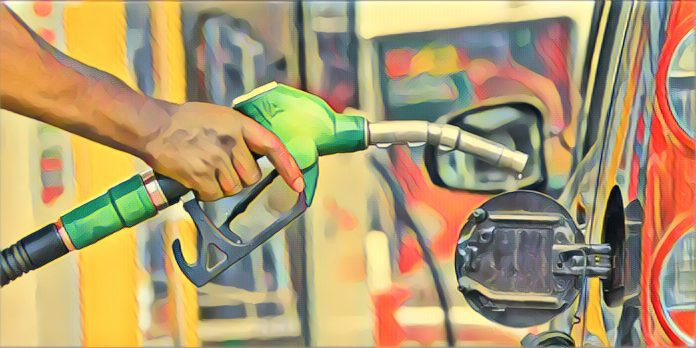Nigeria, the largest oil producer in Africa, has been subsidizing the petrol price for its citizens for decades. The policy, which aims to make fuel affordable for the masses, has cost the government billions of dollars yearly and has been widely criticized as inefficient and corrupt.
However, the government has decided to end the fuel subsidy regime in May 2023, saying it is no longer sustainable and that the money saved will be used for infrastructure and social welfare. Some experts and international organizations praised the move as a bold and necessary reform that would boost the economy and attract investment.
But it also triggered a sharp rise in petrol prices across the country, from an average of 162 nairas ($0.41) per liter in April to 617 nairas ($0.78) per liter in July, according to the state-owned Nigerian National Petroleum Corporation (NNPC).
The impact of the subsidy removal on the economy and the people has been mixed. On one hand, it has eased the fiscal pressure on the government, which spent over 4 trillion naira ($10 billion) on fuel subsidies in 2022, according to Farouk Ahmed, the head of the Nigerian Midstream and Downstream Petroleum Regulatory Authority (NMDPRA). He revealed this at an energy labor summit organized by a workers’ union in Abuja on Tuesday.
He also said that the subsidy removal had opened the market for private petrol importers, whom the NMDPRA has licensed to compete with the NNPC, which had been the sole importer using crude swap contracts. He said that 10 private firms have already started importing petrol and that more are expected to join in the coming months.
On the other hand, the subsidy removal has also increased the cost of living for millions of Nigerians, who depend on petrol for transportation, power generation, and other essential services. The increase in petrol prices has also pushed up inflation, which reached 18.2 percent in June 2023, the highest level since January 2017.
Many Nigerians have expressed anger and frustration over the policy, saying it has worsened their difficult economic situation amid the COVID-19 pandemic and its aftermath. Some civil society groups and labor unions have called for protests and strikes to demand a reversal of the subsidy removal or a reduction in petrol prices.
The government has defended its decision, saying it is in the country’s best interest and will cushion the subsidy removal’s effects with palliatives and social interventions for the poor and vulnerable. It has also promised to release an economic roadmap in the coming weeks that will address some of the economic challenges and create more opportunities for growth and development.
The fuel subsidy issue is not new in Nigeria. It has been a source of controversy and conflict for many years, with several attempts to reform or scrap it being met with public outcry and sometimes violent protests. The most notable example was in 2012 when then-President Goodluck Jonathan announced a sudden subsidy removal, which doubled petrol prices overnight and sparked nationwide demonstrations known as Occupy Nigeria. Jonathan was forced to restore the subsidy after two weeks of unrest partially.
The current situation is different from 2012 in some ways. For one thing, President Bola Tinubu has more political capital and legitimacy than Jonathan did then. Tinubu won a landslide victory in February 2023 with 37 percent of the vote, defeating his main rivals, Atiku Abubakar and Peter Obi, who got 29 and 25 percent, respectively. Tinubu also has a strong track record as a former governor of Lagos State, where he transformed Nigeria’s commercial hub with infrastructure development and economic reforms. He is widely seen as a visionary leader who can steer Nigeria out of its current challenges.
Another difference is that Nigeria faces a more complex and uncertain global environment than in 2012. The COVID-19 pandemic has disrupted economic activity and trade worldwide, affecting oil demand and prices. Nigeria’s oil sector, which accounts for about nine percent of its GDP and almost 90 percent of its export earnings, has suffered from low production levels due to technical issues, security threats, and OPEC quotas. Nigeria also faces increasing competition from other oil producers, especially those with cleaner and cheaper energy sources.
The fuel subsidy debate in Nigeria will likely continue for a while as the government and the people weigh the costs and benefits of the policy. The outcome will depend on how well the government manages the transition, how the market responds, and how the public reacts. Whatever the case, Nigeria’s oil sector is undergoing a major transformation that will have significant implications for its economy and society. But there is also hope that this change will bring more opportunities and prosperity for Nigerians in the long run.
Source: Business Day Nigeria



